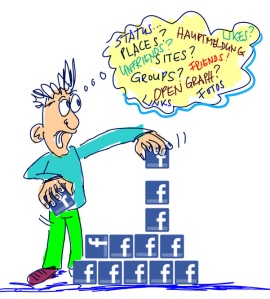With the accessibility that is the Internet becoming easier and easier, the fine line between sharing and stealing has become thinner and thinner. Stealing, as most people would be able to define, is wrongfully taking something from someone else without the right to do so. The term “sharing”, however, has taken on a slightly different definition since the birth of the World Wide Web. We are now able to access anything posted by anyone else to use for our own purposes. Rules do still apply in the Internet world, but it’s no problem to be able to take whatever you want online, even if you’re not supposed to.
 Many would say sharing on the Internet still holds its Merriam-Webster definition: to partake of, use, experience, occupy, or enjoy with others. Sharing on YouTube means uploading music videos and being able to watch them with thousands of people around the globe. And if I can listen to them online, I can download the mp3 and listen to them on my computer, right? That’s where sharing gets questionable.
Many would say sharing on the Internet still holds its Merriam-Webster definition: to partake of, use, experience, occupy, or enjoy with others. Sharing on YouTube means uploading music videos and being able to watch them with thousands of people around the globe. And if I can listen to them online, I can download the mp3 and listen to them on my computer, right? That’s where sharing gets questionable.
With all the opinions and ideas on the Internet, it’s hard to find anything totally and completely original. At some point, people have ideas that happen to already be out there. By mashing together other people’s ideas to try and create something original, another fine line has to be drawn between a new thought and a stolen one. Even though something is posted publicly on the Internet, it could still be considered private intellectual property of the one that posted it. When using ideas found online, people must remember to take in that opinion but not use it as their own. If you’re not creative enough to think of your own thing, cite your sources and everyone’s happy!
In his book Program or Be Programmed, Rushkoff is convinced that unless we learn how to program computers, they will begin to program us. By that he means that we will be slaves to what we think are the limitations of the computer until we realize that we hold the capability to control a computer’s every action.
Although I see and understand his many points, I am not totally convinced that Rushkoff is right. I do not know how to program a computer, but that doesn’t mean the computer is dictating everything I do. Even if I did know how to program, my life in interaction with my computer would not change; I would still be a slave to my Creighton e-mail and a creep on Facebook regardless if I knew how to create those pages.
With that said, there definitely are advantages of learning computer programming: you could save bills on computer repairs, build your own webpage, and look cooler (geekier) than all your friends. The extent of benefits that Rushkoff seems to think there are though, I don’t know… I think knowledge of how computers affect our lives is important – remembering all the biases in Program or Be Programmed. But besides realizing the machine is just that, a machine, I do not think learning computer programming is necessarily important.



